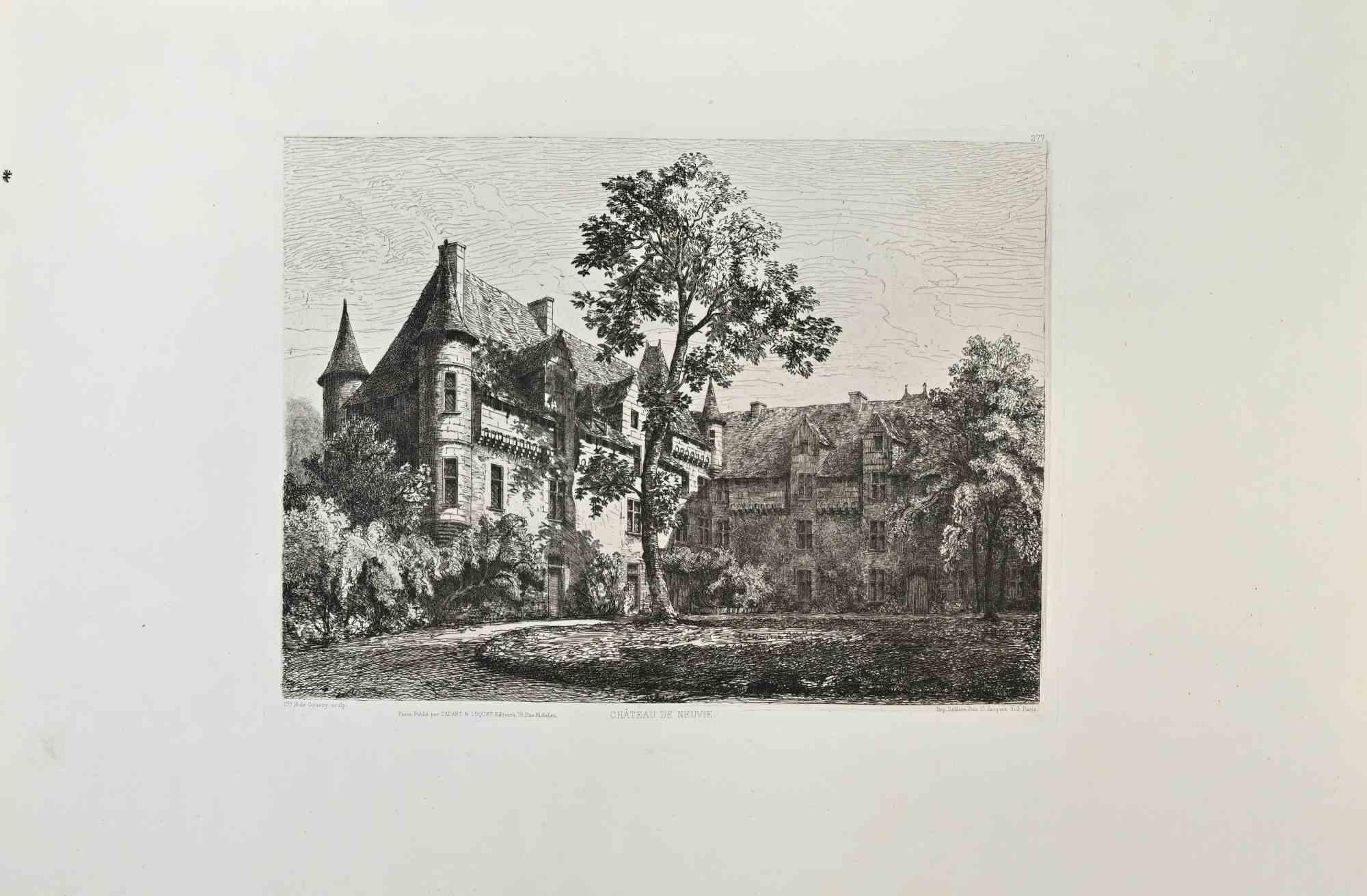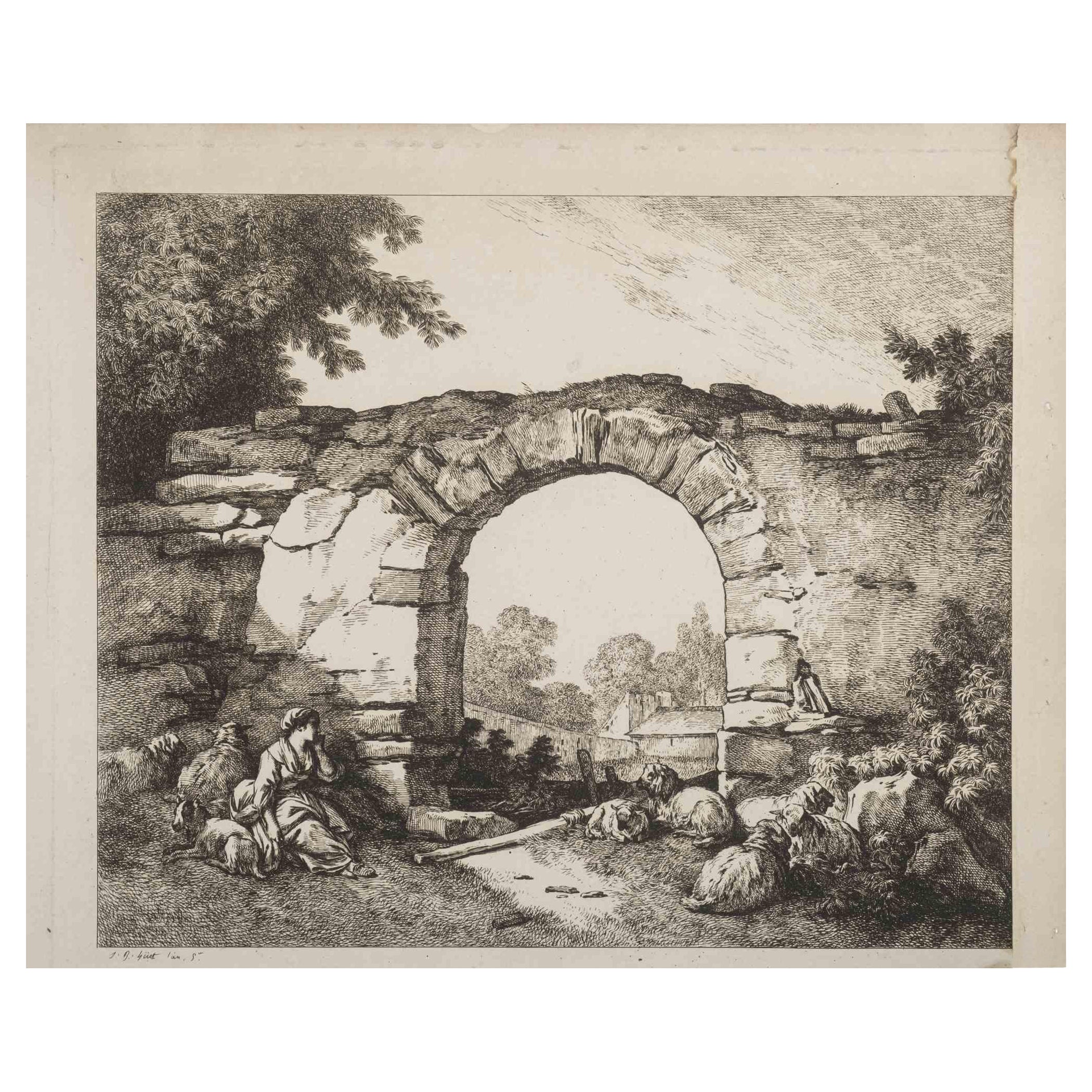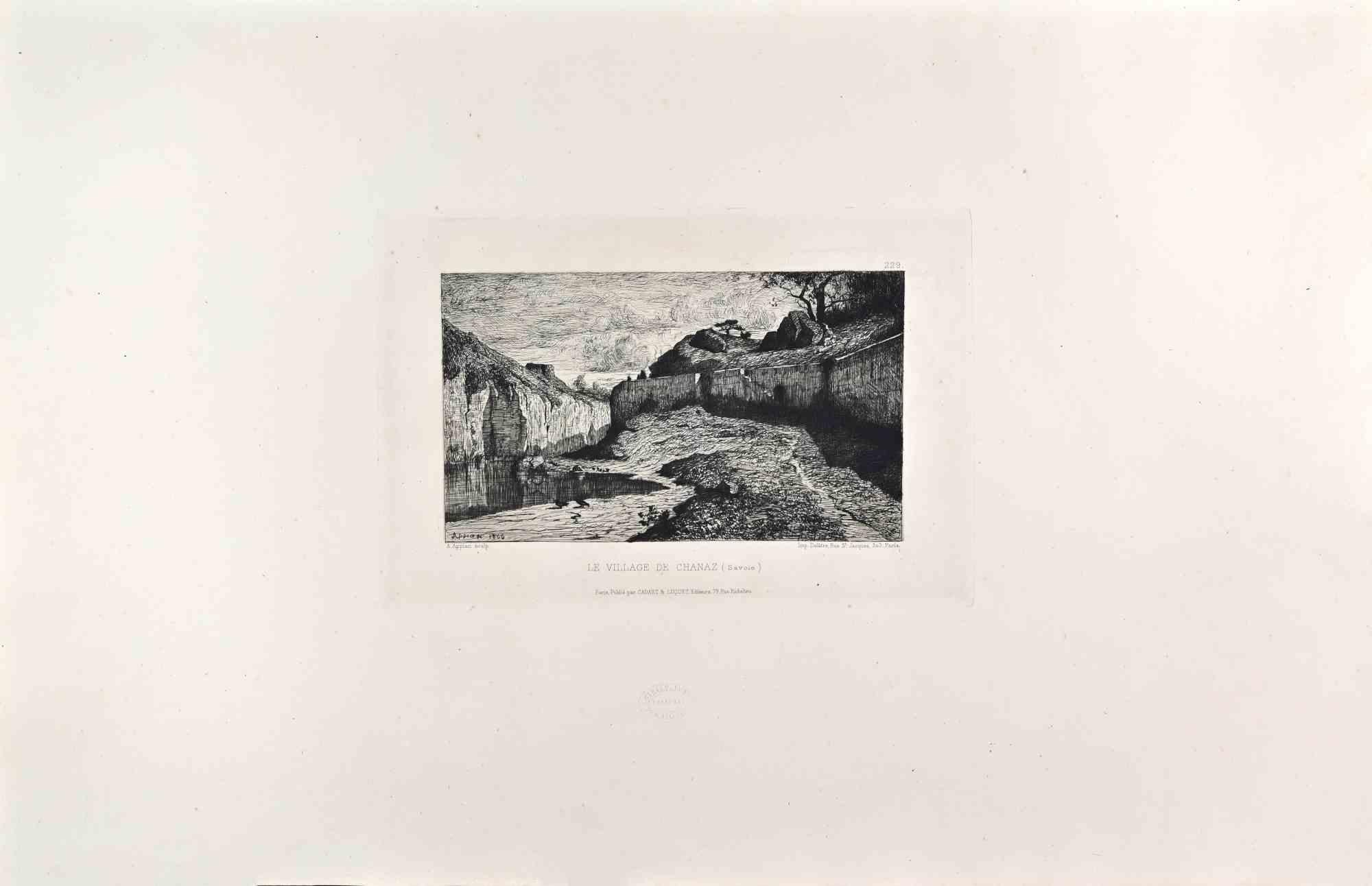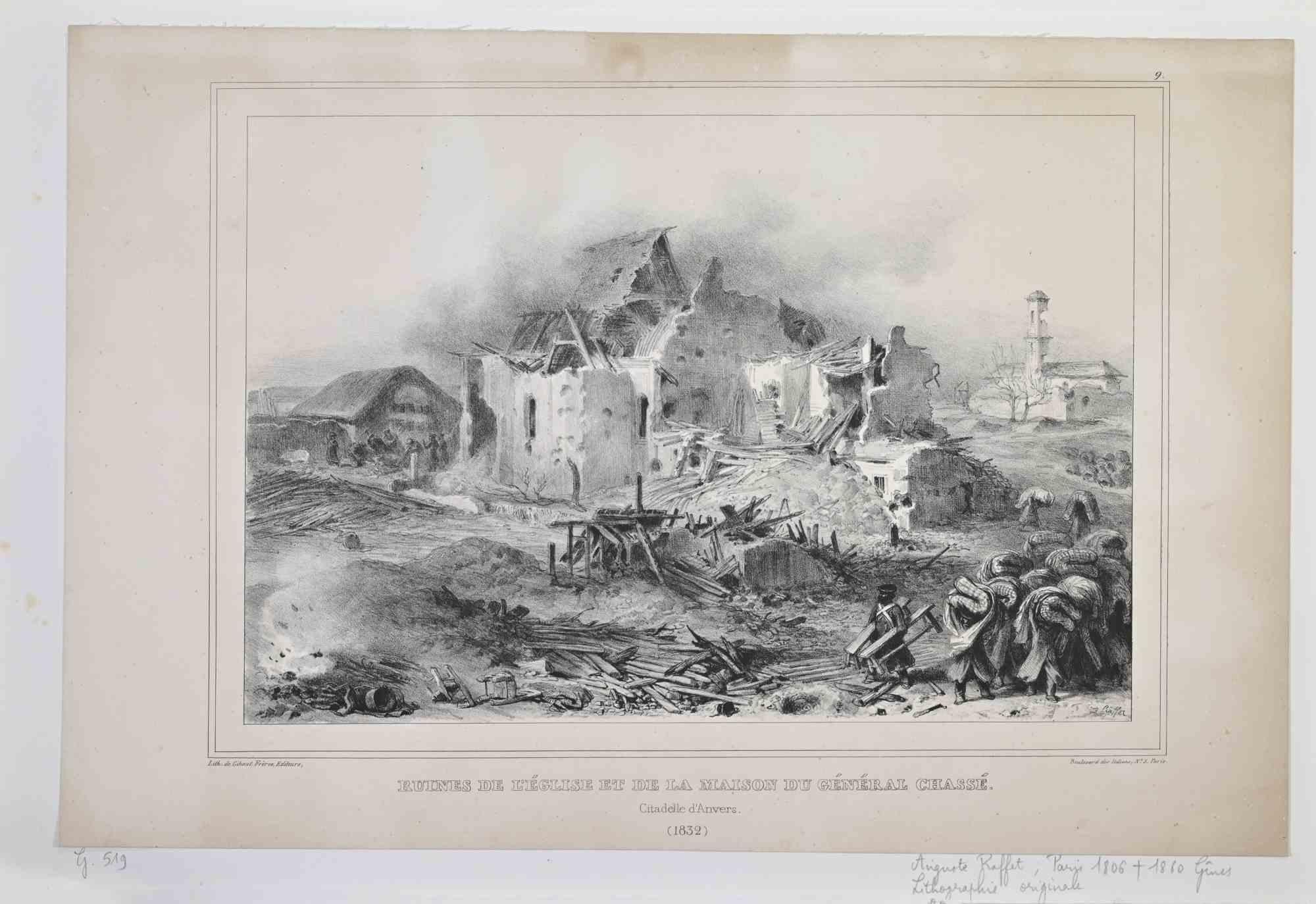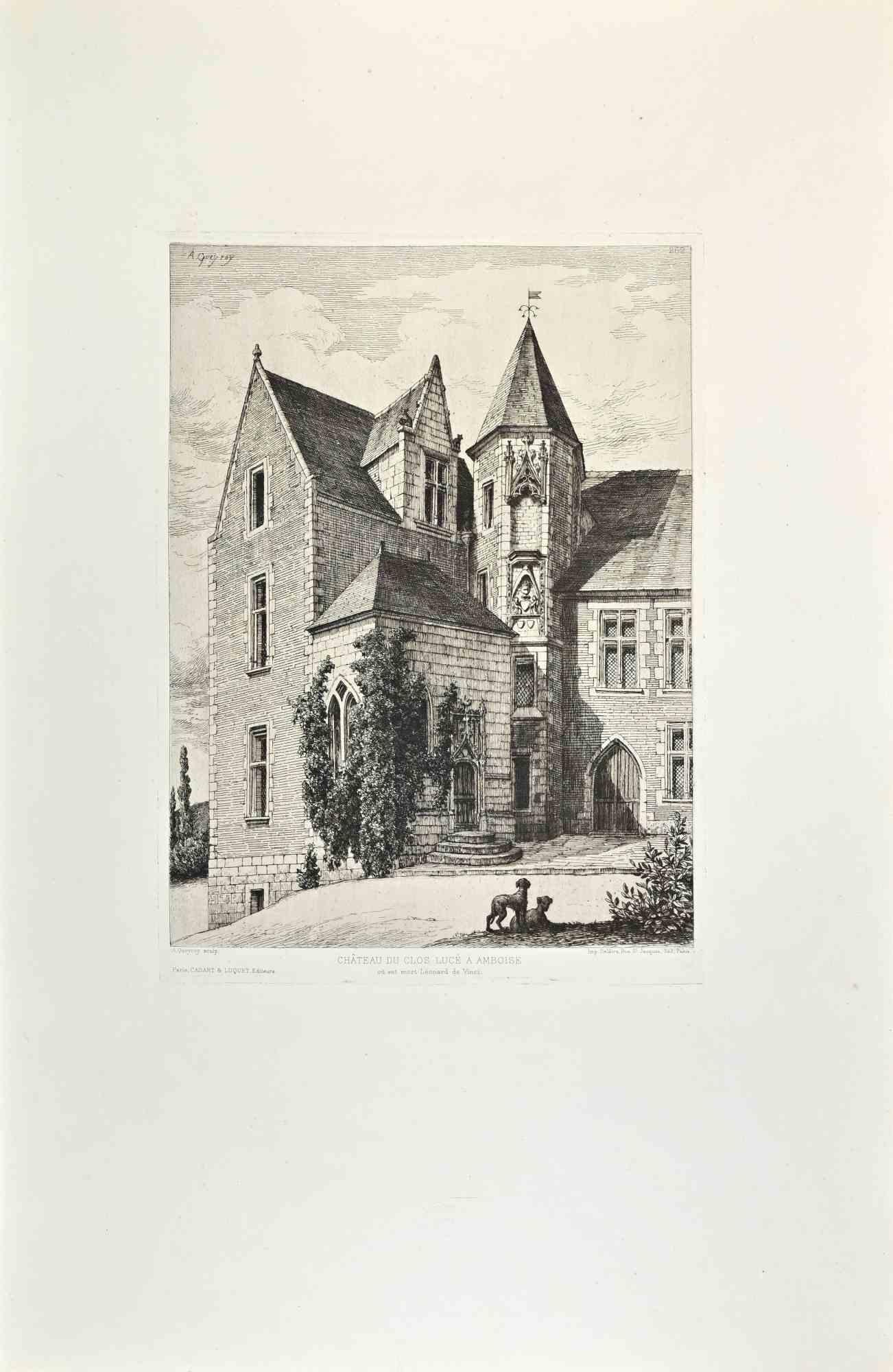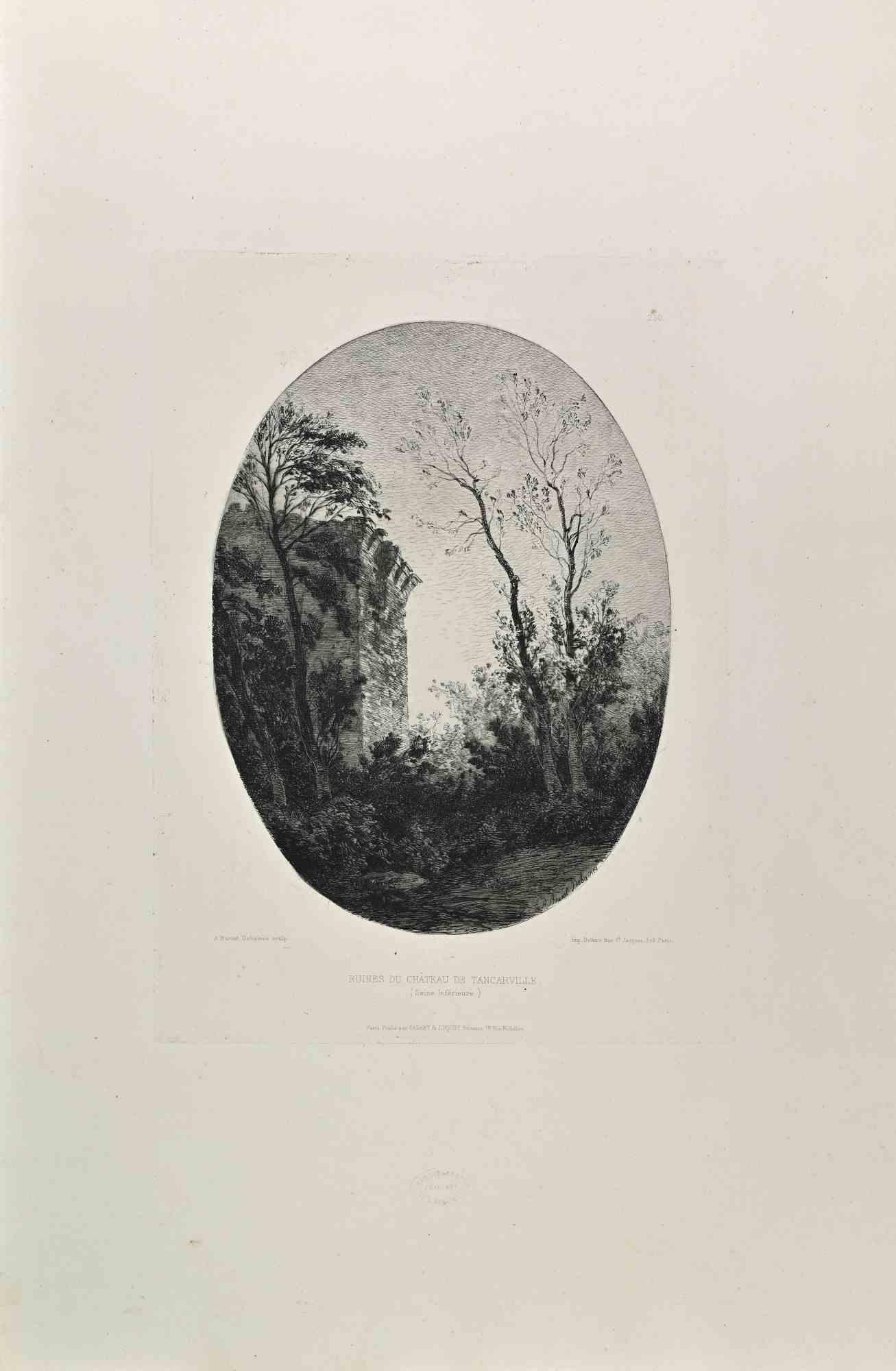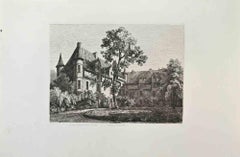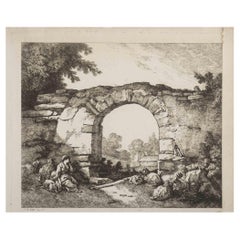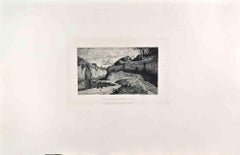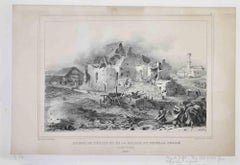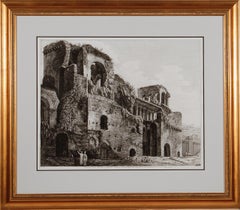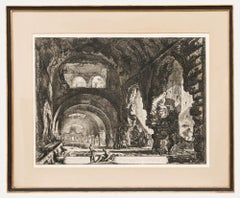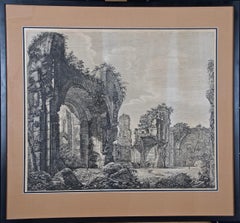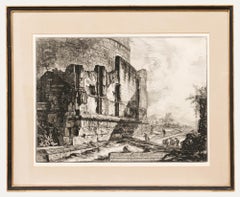Items Similar to Ruine de la Villa Adrienne - Etching by Joseph-Charles Nigote - 1870s
Want more images or videos?
Request additional images or videos from the seller
1 of 5
Joseph-Charles NigoteRuine de la Villa Adrienne - Etching by Joseph-Charles Nigote - 1870s1870s
1870s
$574.39
£429.01
€480
CA$791.33
A$862.41
CHF 456.68
MX$10,358.39
NOK 5,781.68
SEK 5,315.68
DKK 3,656.77
About the Item
Ruine de la Villa Adrienne is an artwork realized by Joseph-Charles Nigote in the 1870s.
Etching.
Good conditions.
Realized for the "Société des Aquafortistes. Born on the initiative of the publisher Alfred Cadart, the Société des Aquafortistes had the aim of reviving etching which had slowly been replaced by the cheaper lithography. Among the first participants in the association were the Barbizon painters who helped raise the medium to new heights, but over 100 leading French artists contributed to the creation of the 300 engravings. With the publication of the last volume in 1867 the society, given the high costs and modest commercial success, was dissolved but new experiments were soon born: Félicien Rops, former member, founded the Société Internationale des Aquafortistes in Brussels in December 1869 , while in London The Portfolio and the Society of Painter-Etchers were born respectively in 1870 and 1880. In Paris, in 1873, the magazine Paris à l'eau-forte was founded.
- Creator:Joseph-Charles Nigote
- Creation Year:1870s
- Dimensions:Height: 21.66 in (55 cm)Width: 14.18 in (36 cm)Depth: 0.04 in (1 mm)
- Medium:
- Movement & Style:
- Period:
- Framing:Framing Options Available
- Condition:Insurance may be requested by customers as additional service, contact us for more information.
- Gallery Location:Roma, IT
- Reference Number:Seller: T-1530991stDibs: LU650315817622
About the Seller
4.9
Platinum Seller
Premium sellers with a 4.7+ rating and 24-hour response times
1stDibs seller since 2017
7,851 sales on 1stDibs
Typical response time: 1 hour
- ShippingRetrieving quote...Shipping from: Grasse, France
- Return Policy
More From This Seller
View AllChâteau de Neuvie - Etching by Henri de Gourcy - 1870s
Located in Roma, IT
Château de Neuvie is an artwork realized by Henri de Gourcy in the 1870s.
Etching.
Good conditions.
Realized for the "Société des Aquafortistes. Born on the initiative of the pu...
Category
1870s Modern Figurative Prints
Materials
Etching
Landscape with Ruins - Original Etching by J.B. Huet - 19th Century
Located in Roma, IT
Landscape with Ruins is an original artwork realized by Jean-Baptiste Huet in the Late 19th Century.
Etching print.
Good conditions.
Signed on the plate.
The artwork is depicted ...
Category
19th Century Modern Figurative Prints
Materials
Etching
Le Village de Chanaz - Etching by Appian - 1860s
By Adolphe APPIAN
Located in Roma, IT
Le Village de Chanaz is a black and White etching realized by A. Appian in the 1860s.
Titled in the lower.
Image size: 16x23.
Very good impression with wide margins and a very fr...
Category
1860s Modern Figurative Prints
Materials
Etching
Ruins - Lithograph by Auguste Raffet - 1832
Located in Roma, IT
Ruins is a Lithograph realized by Auguste Raffet in 1832
Signed in the plate.
Good condition with foxing.
Category
1810s Modern Figurative Prints
Materials
Lithograph
Chateau du Clos lucé à Amboise - Etching by Armand Queyroy - 1870s
Located in Roma, IT
Chateau du Clos lucé à Amboise is an artwork realized by A. Queyroy in the 1870s.
Etching.
Good conditions.
Realized for the "Société des Aquafortistes. Born on the initiative o...
Category
1870s Modern Figurative Prints
Materials
Etching
Ruines du Chateau de Tancarville by Alfred-Luois Burnet Debaines - 1860s
Located in Roma, IT
Ruines du Chateau de Tancarville is a black and White etching realized by Alfred-Luois Burnet Debaines in the 1860s.
Titled in the lower.
Image size: 31x22.
Very good impression ...
Category
1860s Symbolist Figurative Prints
Materials
Etching
You May Also Like
Ruins of the Roman Baths of Belisarius: A 19th C. Etching by Luigi Rossini
By Luigi Rossini
Located in Alamo, CA
This early 19th century etching entitled "Veduta degl' Avanzi delle Torri di Belisario Dalla parte che guarda l' Interno della Città, vicino a Porta S. Giovanni, A. Mura Aureliane" (...
Category
1820s Old Masters Landscape Prints
Materials
Etching
After Giovanni Battista Piranesi - Early 20th Century Etching, Villa of Maecenas
Located in Corsham, GB
A charming etching depicting Giovanni Battista Piranesi's Villa of Maecenas at Tivoli. Inscribed with artist name in plate. Presented in a black and gilt frame. On paper.
Category
20th Century Landscape Prints
Materials
Etching
19th Century Etching of the Ancient Caracalla Baths in Rome by Luigi Rossini
By Luigi Rossini
Located in Alamo, CA
This early 19th century etching entitled "Veduta dei Grandi Avanzi delle Terme Antoniane, o di Caracalla" (The baths of Caracalla) was created by Luigi Rossini and included in his pu...
Category
1820s Old Masters Figurative Prints
Materials
Etching
$2,380 Sale Price
20% Off
After Giovanni Battista Piranesi - 20th Century Engraving, Plautii Mausoleum
Located in Corsham, GB
A charming engraving with etched details. Inscribed in plate. Presented in a painted black and gold gilt frame. On paper.
Category
20th Century Landscape Prints
Materials
Engraving
Ruine di Sepolcro antico
By Giovanni Battista Piranesi
Located in Fairlawn, OH
Ruine di Sepolcro antico
Etching, 1743
Signed in the plate bottomleft in the caaption plate
From: Prima Parte, 1743
Second edition: 1750-1778
Watermark: R 37-39
A lifetime impression printed during Piranesi’s life, before the plates are moved to Paris by his sons in the 1790’s
Coniditon: Excellent/Very good
Image size: 14 5/8 x 9 3/4 inches
Reference: Robison 17 iii/V
Piranesi In Rome: Prima Parte di Architetture e Prospettive
"Although Piranesi studied architecture in Venice, he never was able to find work in the field other than a few jobs involving remodeling in Rome. While Piranesi was struggling to support his architectural endeavors upon his arrival in Rome in 1740, he spent a short period of time in the studio of master painter Giovanni Battista Tiepolo (1696-1770) in addition to his apprenticeship with Giuseppe Vasi. The first production of Piranesi’s early years in Rome and a culmination of his training under Vasi, Tiepolo, and his uncle, was the Prima Parte di Architetture e Prospettive (1743). The Prima Parte was a collection of twelve etchings of imaginary temples, palaces, ruins, and a prison. During this time, Piranesi was still developing the unique style of etching he is known for today, and as such the Prima Parte differs significantly in technique compared to later works. In the Frontispiece of the Prima Parte, Piranesi’s lines are definite and exact with very little flow to them, designed in the form of traditional etching. The detail is immaculate, and yet perspective of the piece is oddly simple and familiar to the viewer. Piranesi’s technique employs miniscule markings and lines, intricately woven together to create a stippling effect. The Prima Parte, described as “rigid” by art historian Jonathan Scott, came to be seen as a stark contrast to his later sketches, which were much lighter and freer. Influenced by the style of Tiepolo, which epitomized the lightness and brightness of the Rococo period, Piranesi adopted some of the more painterly techniques of the masters he apprenticed under. Piranesi made the medium of etching appear as though it was a sketch or a painting, hence a “freer” and more fluid design in his later works. For example, the frontispiece of the Prima Parte read as an etching to Piranesi’s audience, but in his later vedute, the style of etching almost appears to be made of brushstrokes. Moreover, at the same time Piranesi was working on the Prima Parte, he aided the artist Giambattista Nolli. There is a small section of Nolli’s map...
Category
1740s Old Masters Interior Prints
Materials
Etching
Roman Architectural Etching by Carlo Casanova, c. 1900
Located in New York, NY
Carlo Casanova (Italian, 1871-1950)
Vecchio Giardino (Old Garden), c. 1900
Etching
Sight: 7 1/4 x 8 1/2 in.
Framed: 11 1/2 x 12 x 1/2 in.
Titled lower left, signed lower right.
Car...
Category
20th Century Figurative Prints
Materials
Etching
More Ways To Browse
Paolo E Francesca
Paul Arno
Paul Klee On Sale
Pencil Drawing Print Lithograph
Peter Doig Fisherman
Peter Max Cosmic Runner
Peter Max God Bless America
Peter Max Two Sages
Pharrell Williams Vintage
Picasso Dejeuner
Picasso Gravure
Picasso King
Picasso Letter
Picasso Lithograph Horses
Picasso Non Vouloir
Picasso Picador Et Taureau
Picasso Satyr
Pierre Bonnard Signed
